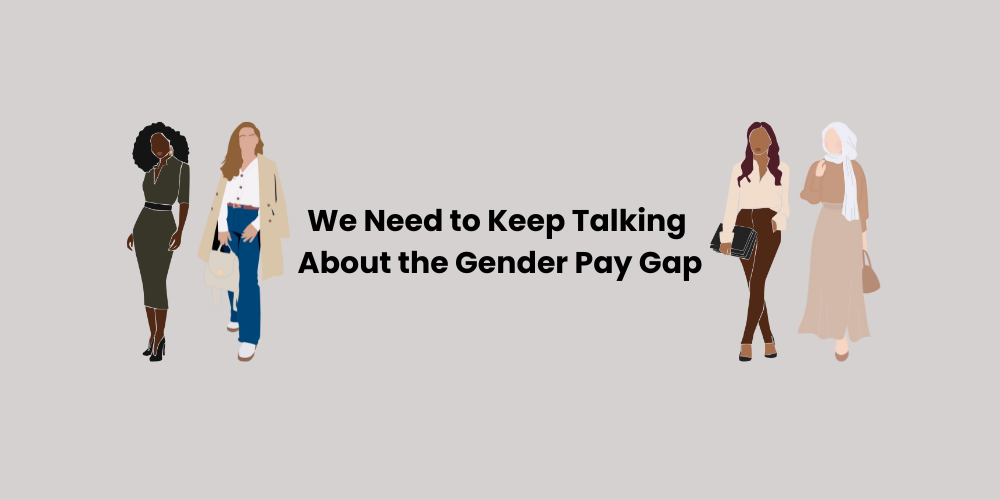
We Need to Keep Talking About the Gender Pay Gap.
Gender pay inequality was big news when companies first had to publish their data a few years ago (2016) – for all the wrong reasons. Very few companies could boast equal pay for men and women, and this gap remains a significant concern, with statistics revealing that women, on average, earn less than their male counterparts in most industries and occupations, often significantly less.
Over the past years, numerous efforts have been made to address this issue and bridge the gap, but despite some progress, it seems the conversation surrounding the gender pay gap has lost momentum. Why has that happened despite the persistent existence of a gender pay gap? We have identified a few reasons:
- Fatigue and complacency: one possible explanation for the decline in conversations about the gender pay gap is fatigue and complacency. Over time, people may have become accustomed to hearing about the issue without seeing substantial change. This complacency can lead to reduced public interest and attention. And if companies aren’t being called out publicly any longer – there is less pressure to act.
- Lack of tangible progress: despite initiatives like mandatory gender pay gap reporting for large companies, progress in closing the gender pay gap has been slow and incremental. This lack of tangible results can dampen the urgency surrounding the issue and lead to a decrease in public discussion and therefore urgency to move towards permanent resolution including updated policies, pay reviews and better process transparency.
- Focus on other social issues: in recent years, alternative prominent social issues have taken centre stage, such as climate change, racial inequality, and mental health. With limited attention and resources, these issues have captured the public discourse, inadvertently pushing gender pay equality into the background.
- COVID-19: the onset of the pandemic in 2020 has undoubtedly diverted attention away from the gender pay gap discussion. The pandemic’s economic and social repercussions have overshadowed many pre-existing concerns, including gender equality in the workplace. Efforts and resources have been redirected towards mitigating the immediate impacts of the pandemic.
- Policy shifts and Brexit: political developments, such as Brexit and changes in government priorities, may have contributed to the fading conversation about the gender pay gap. Shifting policy agendas and uncertainty around the country’s future direction can divert attention from specific issues, including gender equality.
Although the gender pay gap discussion may have lost some of its previous momentum, it is vital to put it firmly back on the agenda so that further, and hopefully faster, progress can happen. Here are our recommended actions:
- Awareness: for tangible change to occur, there needs to be a constant drumbeat to keep the issue at the forefront of societal consciousness.
- Encouraging transparency: strengthening the reporting requirements for companies and enforcing penalties for non-compliance can enhance transparency around pay disparities and hold organisations to account.
- Corporate initiatives: companies should take proactive steps to address the gender pay gap within their organisations. Implementing fair pay practices, promoting diversity and inclusion, and ensuring equal opportunities for career advancement can all contribute to reducing the gap.
- Government action: the government must prioritise gender equality and develop comprehensive policies to address the gender pay gap effectively. This includes investing in affordable childcare, promoting flexible work arrangements, and introducing measures to tackle occupational segregation.
The gender pay gap may no longer dominate headlines in the UK, but the issue is far from resolved. The waning conversation should not be mistaken for the eradication of the problem itself. By recognising the reasons for the diminished focus on the gender pay gap and taking proactive steps to revive the dialogue, we can work towards a more equitable and just society, where individuals are fairly compensated, regardless of their gender.
As part of our Unlock series, a service line to support businesses in increasing their capacity in key EDI problem areas, we have developed a toolkit to help reduce the gap. If you’re interested in our gender pay gap toolkit, drop us a line at info@skatingpanda.com for more information.


